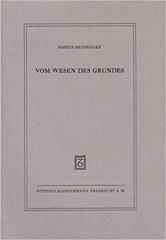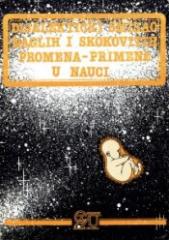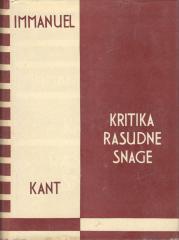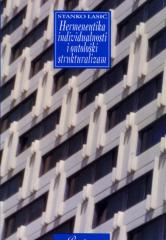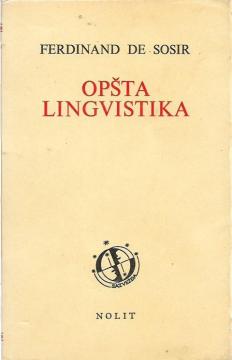
Opšta lingvistika
The book Opšta lingvistika or General Course in Linguistics (1916, compiled posthumously from the lectures of the Swiss linguist Ferdinand de Saussure, 1857–1913) represents the foundation of structuralism and modern linguistics.
Saussure distinguishes langue (language as an abstract system of signs in society) from parole (individual speech acts), focusing on a synchronic analysis of language at a given moment, as opposed to a diachronic (historical) one.
The concept of the sign is key: it consists of a signifier (a sound or written form, e.g. the word "tree") and a signified (a concept, a mental image of a tree). The relationship is arbitrary (random), determined by convention, not by natural similarities. Signs are organized into paradigms (possible alternatives, e.g. synonyms) and syntagmas (linear combinations, e.g. sentences), where the principle of differentiation applies: meaning arises from relationships, not isolated elements.
Saussure divides language into phonetics (sounds), morphology (word forms), syntax (sentences), and semantics (meanings). He criticizes traditional grammar, advocating linguistics as an independent science of sign systems, influencing anthropology, literature, and semiotics. The book changes the paradigm: language is not just a tool, but a system that shapes thought and reality.
Two copies are available
